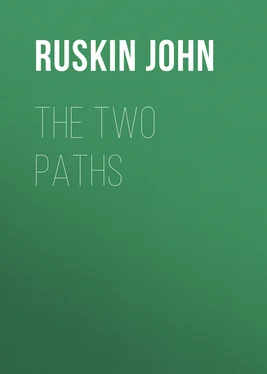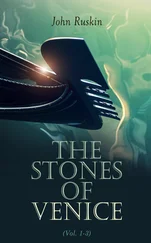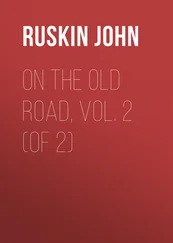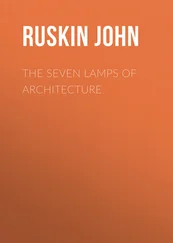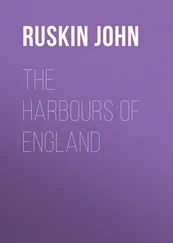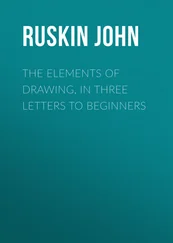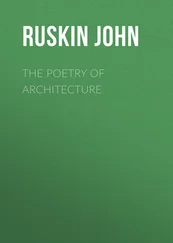John Ruskin - The Two Paths
Здесь есть возможность читать онлайн «John Ruskin - The Two Paths» — ознакомительный отрывок электронной книги совершенно бесплатно, а после прочтения отрывка купить полную версию. В некоторых случаях можно слушать аудио, скачать через торрент в формате fb2 и присутствует краткое содержание. Жанр: foreign_antique, foreign_home, architecture_book, literature_19, visual_arts, на английском языке. Описание произведения, (предисловие) а так же отзывы посетителей доступны на портале библиотеки ЛибКат.
- Название:The Two Paths
- Автор:
- Жанр:
- Год:неизвестен
- ISBN:нет данных
- Рейтинг книги:4 / 5. Голосов: 1
-
Избранное:Добавить в избранное
- Отзывы:
-
Ваша оценка:
- 80
- 1
- 2
- 3
- 4
- 5
The Two Paths: краткое содержание, описание и аннотация
Предлагаем к чтению аннотацию, описание, краткое содержание или предисловие (зависит от того, что написал сам автор книги «The Two Paths»). Если вы не нашли необходимую информацию о книге — напишите в комментариях, мы постараемся отыскать её.
The Two Paths — читать онлайн ознакомительный отрывок
Ниже представлен текст книги, разбитый по страницам. Система сохранения места последней прочитанной страницы, позволяет с удобством читать онлайн бесплатно книгу «The Two Paths», без необходимости каждый раз заново искать на чём Вы остановились. Поставьте закладку, и сможете в любой момент перейти на страницу, на которой закончили чтение.
Интервал:
Закладка:
Do not think that I am speaking under excited feeling, or in any exaggerated terms. I have written the words I use, that I may know what I say, and that you, if you choose, may see what I have said. For, indeed, I have set before you tonight, to the best of my power, the sum and substance of the system of art to the promulgation of which I have devoted my life hitherto, and intend to devote what of life may still be spared to me. I have had but one steady aim in all that I have ever tried to teach, namely—to declare that whatever was great in human art was the expression of man's delight in God's work.
And at this time I have endeavoured to prove to you—if you investigate the subject you may more entirely prove to yourselves—that no school ever advanced far which had not the love of natural fact as a primal energy. But it is still more important for you to be assured that the conditions of life and death in the art of nations are also the conditions of life and death in your own; and that you have it, each in his power at this very instant, to determine in which direction his steps are turning. It seems almost a terrible thing to tell you, that all here have all the power of knowing at once what hope there is for them as artists; you would, perhaps, like better that there was some unremovable doubt about the chances of the future—some possibility that you might be advancing, in unconscious ways, towards unexpected successes—some excuse or reason for going about, as students do so often, to this master or the other, asking him if they have genius, and whether they are doing right, and gathering, from his careless or formal replies, vague flashes of encouragement, or fitfulnesses of despair. There is no need for this—no excuse for it. All of you have the trial of yourselves in your own power; each may undergo at this instant, before his own judgment seat, the ordeal by fire. Ask yourselves what is the leading motive which actuates you while you are at work. I do not ask you what your leading motive is for working—that is a different thing; you may have families to support—parents to help—brides to win; you may have all these, or other such sacred and pre-eminent motives, to press the morning's labour and prompt the twilight thought. But when you are fairly at the work, what is the motive then which tells upon every touch of it? If it is the love of that which your work represents—if, being a landscape painter, it is love of hills and trees that moves you—if, being a figure painter, it is love of human beauty and human soul that moves you—if, being a flower or animal painter, it is love, and wonder, and delight in petal and in limb that move you, then the Spirit is upon you, and the earth is yours, and the fulness thereof. But if, on the other hand, it is petty self-complacency in your own skill, trust in precepts and laws, hope for academical or popular approbation, or avarice of wealth,—it is quite possible that by steady industry, or even by fortunate chance, you may win the applause, the position, the fortune, that you desire;– but one touch of true art you will never lay on canvas or on stone as long as you live.
Make, then, your choice, boldly and consciously, for one way or other it must be made. On the dark and dangerous side are set, the pride which delights in self-contemplation—the indolence which rests in unquestioned forms—the ignorance that despises what is fairest among God's creatures, and the dulness that denies what is marvellous in His working: there is a life of monotony for your own souls, and of misguiding for those of others. And, on the other side, is open to your choice the life of the crowned spirit, moving as a light in creation— discovering always—illuminating always, gaining every hour in strength, yet bowed down every hour into deeper humility; sure of being right in its aim, sure of being irresistible in its progress; happy in what it has securely done—happier in what, day by day, it may as securely hope; happiest at the close of life, when the right hand begins to forget its cunning, to remember, that there never was a touch of the chisel or the pencil it wielded, but has added to the knowledge and quickened the happiness of mankind.
LECTURE II.
THE UNITY OF ART
Part of an Address delivered at Manchester, 14th March, 1859.
[Footnote: I was prevented, by press of other engagements, from preparing this address with the care I wished; and forced to trust to such expression as I could give at the moment to the points of principal importance; reading, however, the close of the preceding lecture, which I thought contained some truths that would bear repetition. The whole was reported, better than it deserved, by Mr. Pitman, of the Manchester Courier , and published nearly verbatim. I have here extracted, from the published report, the facts which I wish especially to enforce; and have a little cleared their expression; its loose and colloquial character I cannot now help, unless by re-writing the whole, which it seems not worth while to do.]
It is sometimes my pleasant duty to visit other cities, in the hope of being able to encourage their art students; but here it is my pleasanter privilege to come for encouragement myself. I do not know when I have received so much as from the report read this evening by Mr. Hammersley, bearing upon a subject which has caused me great anxiety. For I have always felt in my own pursuit of art, and in my endeavors to urge the pursuit of art on others, that while there are many advantages now that never existed before, there are certain grievous difficulties existing, just in the very cause that is giving the stimulus to art—in the immense spread of the manufactures of every country which is now attending vigorously to art. We find that manufacture and art are now going on always together; that where there is no manufacture there is no art. I know how much there is of pretended art where there is no manufacture: there is much in Italy, for instance; no country makes so bold pretence to the production of new art as Italy at this moment; yet no country produces so little. If you glance over the map of Europe, you will find that where the manufactures are strongest, there art also is strongest. And yet I always felt that there was an immense difficulty to be encountered by the students who were in these centres of modern movement. They had to avoid the notion that art and manufacture were in any respect one. Art may be healthily associated with manufacture, and probably in future will always be so; but the student must be strenuously warned against supposing that they can ever be one and the same thing, that art can ever be followed on the principles of manufacture. Each must be followed separately; the one must influence the other, but each must be kept distinctly separate from the other.
It would be well if all students would keep clearly in their mind the real distinction between those words which we use so often, "Manufacture," "Art," and "Fine Art." "MANUFACTURE" is, according to the etymology and right use of the word, "the making of anything by hands,"—directly or indirectly, with or without the help of instruments or machines. Anything proceeding from the hand of man is manufacture; but it must have proceeded from his hand only, acting mechanically, and uninfluenced at the moment by direct intelligence.
Then, secondly, ART is the operation of the hand and the intelligence of man together; there is an art of making machinery; there is an art of building ships; an art of making carriages; and so on. All these, properly called Arts, but not Fine Arts, are pursuits in which the hand of man and his head go together, working at the same instant.
Then FINE ART is that in which the hand, the head, and the heart of man go together.
Recollect this triple group; it will help you to solve many difficult problems. And remember that though the hand must be at the bottom of everything, it must also go to the top of everything; for Fine Art must be produced by the hand of man in a much greater and clearer sense than manufacture is. Fine Art must always be produced by the subtlest of all machines, which is the human hand. No machine yet contrived, or hereafter contrivable, will ever equal the fine machinery of the human fingers. Thoroughly perfect art is that which proceeds from the heart, which involves all the noble emotions;—associates with these the head, yet as inferior to the heart; and the hand, yet as inferior to the heart and head; and thus brings out the whole man.
Читать дальшеИнтервал:
Закладка:
Похожие книги на «The Two Paths»
Представляем Вашему вниманию похожие книги на «The Two Paths» списком для выбора. Мы отобрали схожую по названию и смыслу литературу в надежде предоставить читателям больше вариантов отыскать новые, интересные, ещё непрочитанные произведения.
Обсуждение, отзывы о книге «The Two Paths» и просто собственные мнения читателей. Оставьте ваши комментарии, напишите, что Вы думаете о произведении, его смысле или главных героях. Укажите что конкретно понравилось, а что нет, и почему Вы так считаете.
